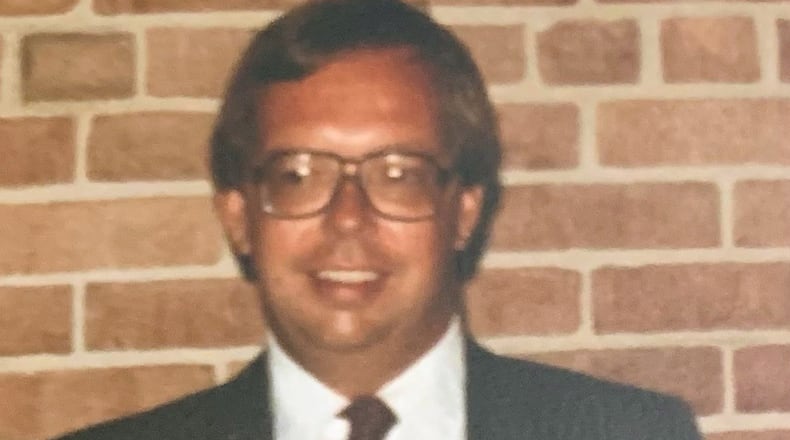“That program was designed to have you work in different departments within the bank,” Boecker said. “This was so you could figure out what you liked and what you were good at doing.”
During that training program, Boecker and the other five new employees in his class were sent to work at different branches in the Dayton area and experienced different jobs.
“I went to commercial credit, accounting, consumer credit collections and even worked as a teller,” Boecker said. “It gave me a broad experience of the bank and I ended up on the commercial side.”
Boecker started his bank career in the former Kettering Tower downtown (now called the Stratacache Tower), moved to the Dayton area, and remained in the same office space for the next 46 years.
“Winters became Bank One in 1983 and they were sold to Chase in 2004,” Boecker said. “There were a lot of changes over the years, but I liked my job and decided to stay.”
When Boecker started at Winters, there were three primary banks in Dayton including First National and Third National Bank. Winters was the largest and had nine floors of office space in the Kettering Tower. There was even an employee dining room on the 28th floor in the 1970s. Today, with Chase Bank headquartered in Columbus, there is only one floor with a few offices left in Stratacache.
Since his retirement in early July, Boecker has been reminiscing about how different banking was at the start of his career.
“When I started, there was no internet,” Boecker said. “We had passbook accounts and did everything long-handed. We had little pocket calculators to help us, but nothing was automated.”
This meant that in order for a large bank like Winters to run efficiently, many more employees were needed. Customer records were kept on ledger cards and had to be researched manually. Though the productivity now is much higher, Boecker said the changes negatively impacted staffing numbers. And when the consolidation with Bank One happened, many operational functions were moved to Columbus, the headquarters of that bank.
“I worked for Winters for eight years before it became Bank One,” Boecker said. “Their selling point was what is called an ‘uncommon partnership,’ with each bank they purchased able to keep their own board of directors and executives.”
But soon it became clear that the overhead was too high, and Bank One was forced to eliminate the uncommon partnership, cutting many executive positions as a result. Though Boecker watched many of his co-workers move on to other jobs with different companies, he opted to stay.
“I guess it always entered my mind that maybe I should look for something else,” Boecker said. “But I enjoyed my job, and I didn’t worry too much because the cuts were happening much higher up.”
Boecker said he enjoyed his job so much because he had direct customer contact, and he believed his job would be needed going forward.
His hunch was correct. In 1996, he moved to the auto financing department at Bank One and continued in that role after Chase Bank acquired Bank One in 2004.
“Computers came on board quickly and changed everything,” Boecker said. “I’m not the best at technology, but you either adapt or you get left behind. And if nothing else, productivity is infinitely higher than it was before computers.”
Boecker remains the last employee from one of Dayton’s hometown banks and even when he announced his pending retirement, the bank was happy to allow him to stay until the last day. He said the pandemic took him away from personal meetings with his customers, which was difficult. Now he is enjoying playing more golf and spending time with his wife, Reenie.
“Another retired guy said to me as I was approaching my last day, ‘Be sure to turn the lights out when you leave,’” Boecker said. “But I couldn’t do that because the bank in whatever form, will go on without me.”
Contact this contributing writer at banspach@ymail.com.
About the Author


